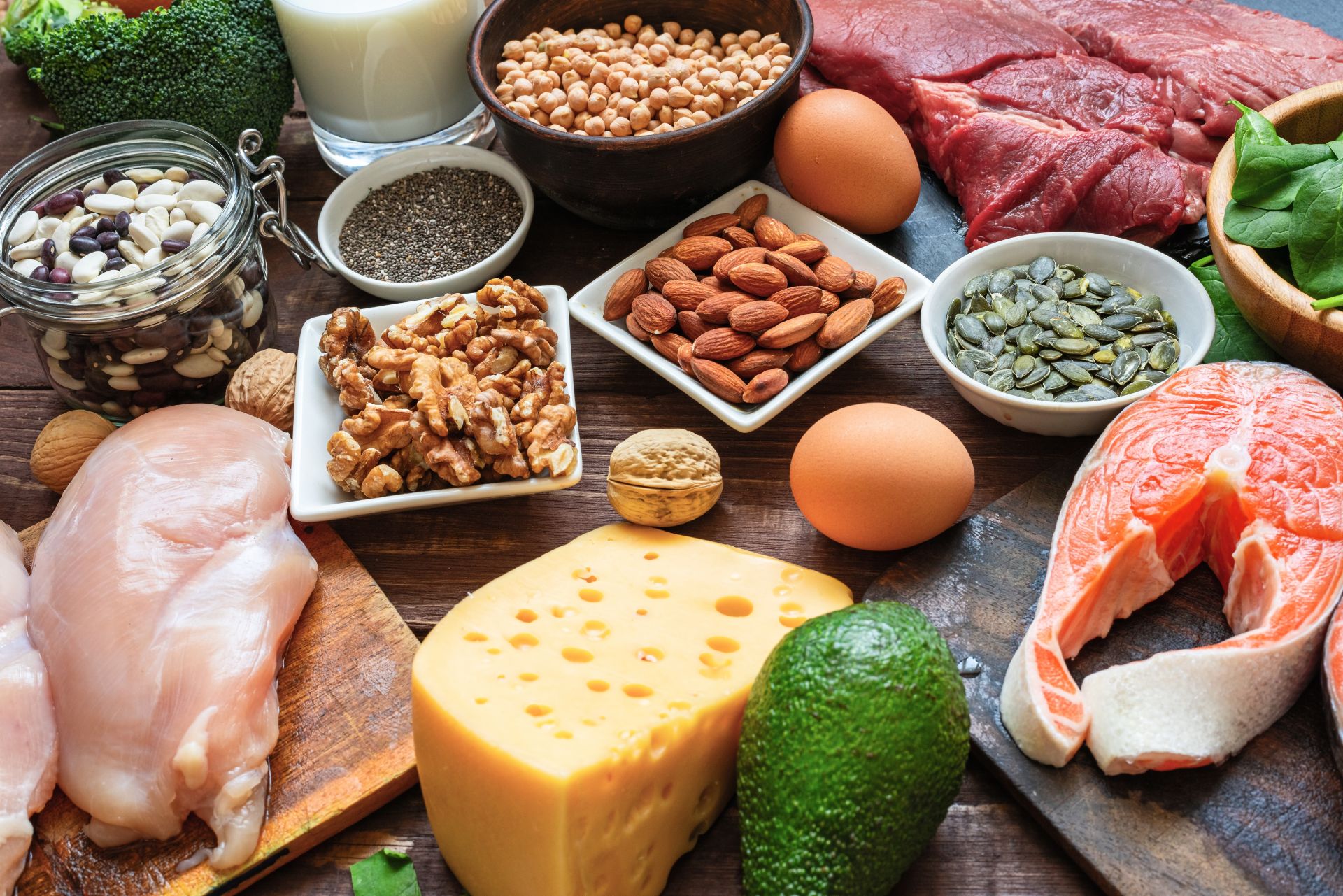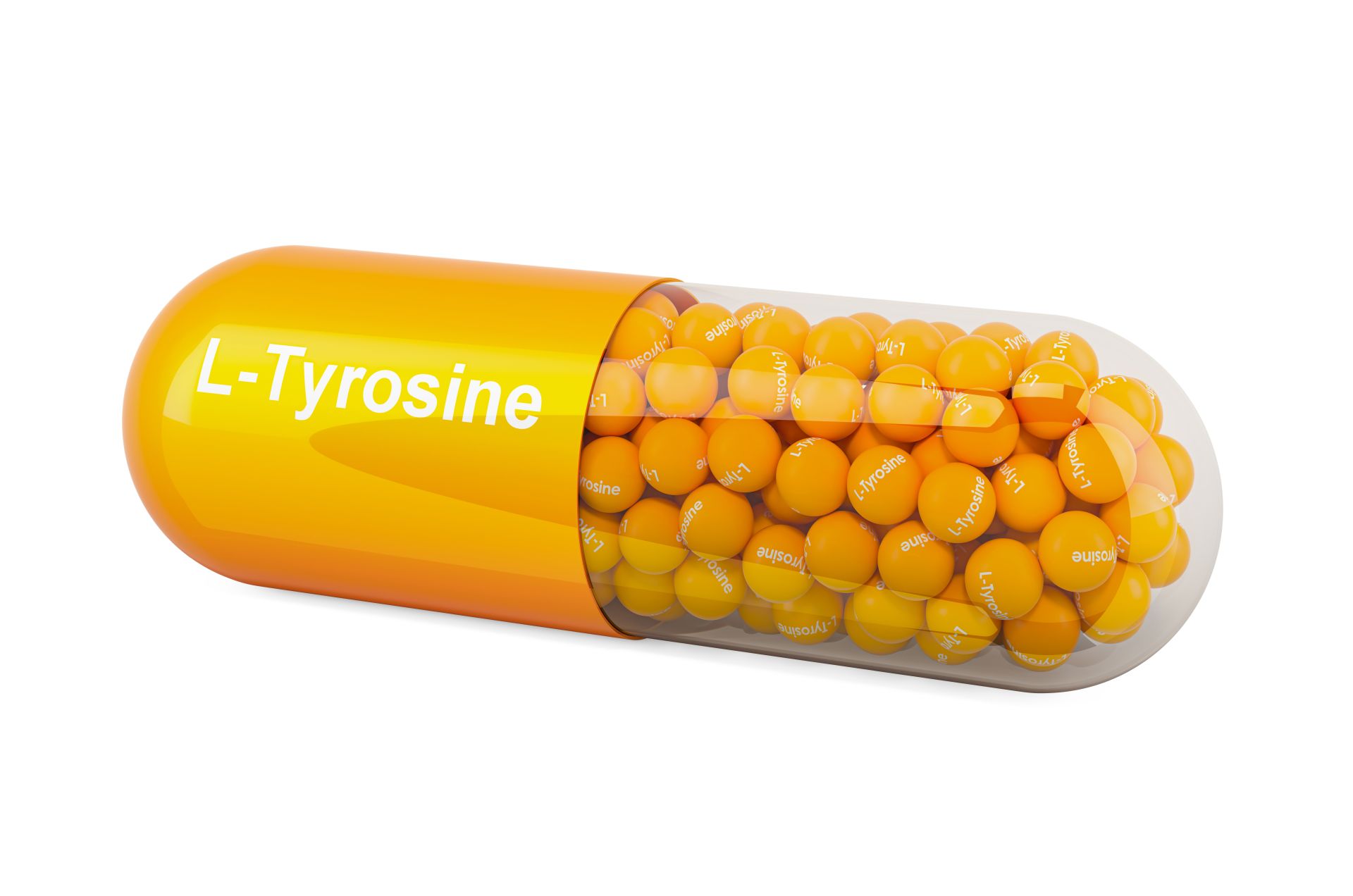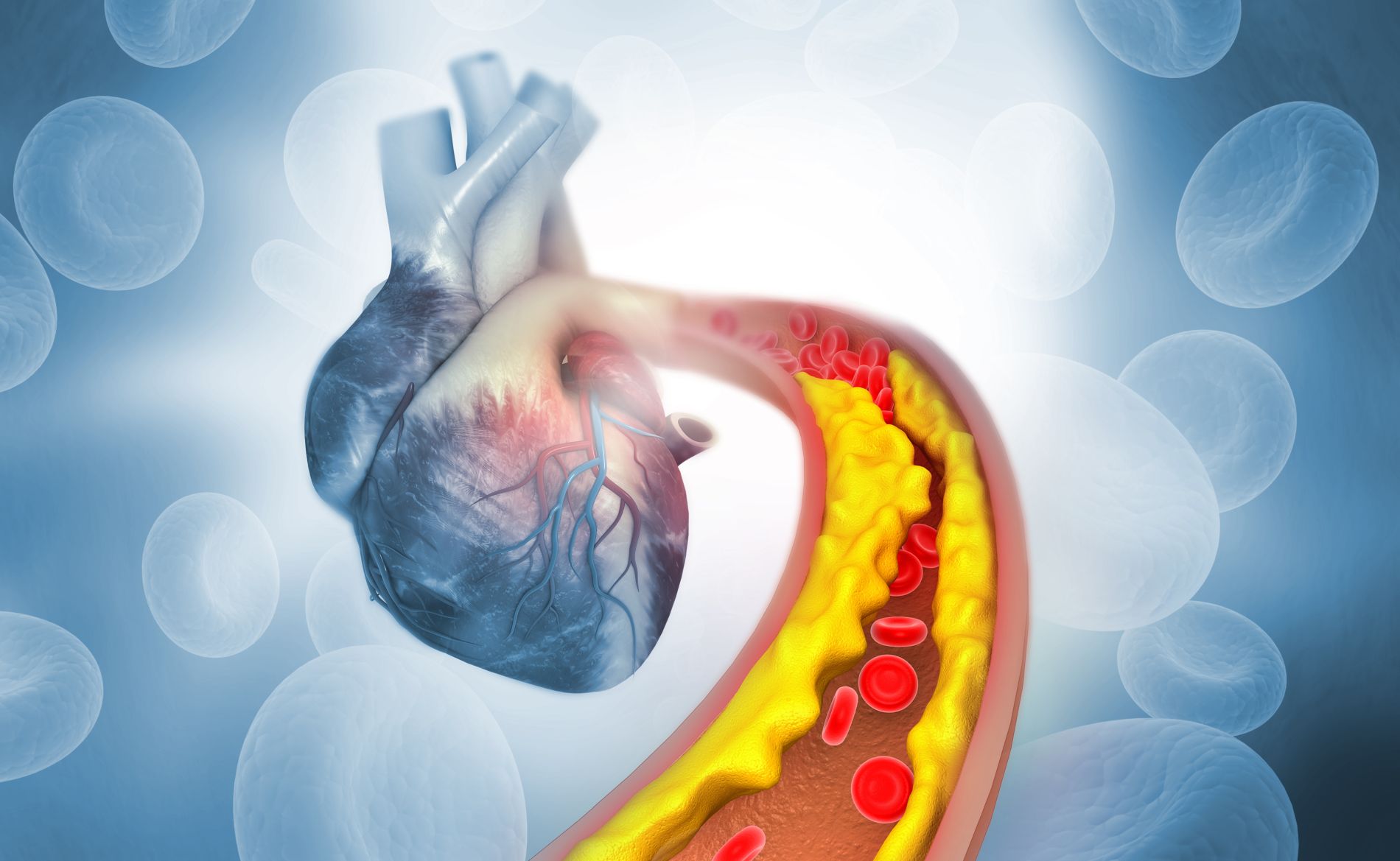Tyrosine and diet - what are the relationships?

A conscious approach to nutrition forces us to know the components of food. At the same time, the idea that food affects the way we think, feel and act is gaining popularity. We need to know what our body needs and how to provide it. In this article we will look at the topic of the amino acid tyrosine in the diet. It has a unique reputation because it is the building block for one of the molecules of happiness and motivation. In what foods is tyrosine found? Or can it be supplied somehow differently? Well, and what benefits can it bring us? Read to the end!
- What do we need tyrosine for?
- Sources of tyrosine in the diet
- Is it worth consuming a lot of tyrosine-containing products?
- Can tyrosine supplementation help maintain a diet?
- When to supplement your diet with a tyrosine supplement?
- Summary
What do we need tyrosine for?
Contained in the diet, L-tyrosine is an amino acid. It is converted by the enzyme tyrosine hydroxylase into L-DOPA, the direct precursor of dopamine, which in turn is converted into norepinephrine. Since the hydroxylase is typically about 75% saturated with tyrosine, higher levels of tyrosine can potentially increase dopamine and norepinephrine synthesis in the brain.
The neurotransmitter dopamine has long been linked to cognitive processes such as working memory, as well as learning and processing feelings of reward (feelings of motivation and subsequent satisfaction), and is known to play an important role in aging.
Promising data on what happens to tyrosine once it enters the body's system has made it not only a valuable food ingredient, but also a popular dietary supplement.
Sources of tyrosine in the diet
Foods rich in the amino acid tyrosine include:
- cheese,
- soy,
- beef,
- lamb,
- pork,
- fish,
- chicken,
- nuts,
- eggs,
- dairy products,
- beans,
- whole grain products.
A source of tyrosine is also phenylalanine
It is worth remembering that in our body tyrosine can be produced from another amino acid, phenylalanine. Phenylalanine is a protein amino acid, so in order to provide adequate amounts of it, it is enough to take care of the daily supply of optimal amounts of complete protein from various products. Therefore, the easiest way to supply phenylalanine is with products from the following groups: meats, fish, dairy, legumes.
It is easy to see that the foods that are sources of phenylalanine and tyrosine are duplicated, so it is not necessary to take care of the supply of each of these amino acids separately, and the usual attention to protein in the diet completely covers the topic.
Is it worth consuming a lot of tyrosine-containing products?
Many studies involving tyrosine have been prompted by the assumption that tyrosine increases the availability of dopamine, which in turn can improve cognitive performance. More efficient brain function is a very enticing promise, and as a result, supplements with L-tyrosine have gained considerable popularity.
Studies have actually noted increases in working memory performance and executive function in young adults who consumed increased amounts of tyrosine on a one-time basis. In later years, similar effects were confirmed with a steady, habitually increased supply of tyrosine. Specifically, positive effects were observed on episodic memory, working memory and fluid intelligence.
Thus, it can be seen that the benefits of paying attention to tyrosine supply do indeed exist. As long as there are no clear contraindications to increasing the supply of tyrosine, it is as worthwhile as possible to increase the proportion of tyrosine in the diet, especially when there are special circumstances.
The literature shows that tyrosine is most effective when neurotransmitters are depleted, that is, when dopamine and norepinephrine levels are reduced. This happens, for example, when the body is exposed to stress, such as hypothermia or a task that requires cognitive function, so that more and more neurotransmitters are synthesized
A popular statement by German philosopher Ludwig Feuerbach, "Der Mensch ist, was er ißt," or you are what you eat, fits here.
Can tyrosine supplementation help maintain a diet?
Tyrosine is sometimes used to help the effects of weight loss diets. Why? In restoring dopamine and norepinephrine stores, it is believed to increase energy and motivation for physical activity. In building thyroid hormones, on the other hand, it is credited with maintaining the efficient work of this organ and optimal metabolism. In theory, tyrosine participates in both aspects.
Dieting is easiest to maintain when we see its effects. Can tyrosine help in an indirect way: by maintaining proper availability of catecholamines, it also allows us to maintain adequate physical activity.
What is it more specifically about? About moving more. Constant movement, even spontaneous movement that doesn't result from sports, means burning calories and better results from weight loss diets. Just by supporting neurotransmitter metabolism, tyrosine has cool potential.

When to supplement your diet with a tyrosine supplement?
Leaving aside cases of malnutrition and a non-optimized vegan diet, tyrosine deficiencies are rare. So why supplement it? And when is it worth doing so?
Supplemental tyrosine supplementation makes sense mainly during periods of heightened stress. Whether it be emotional or physiological stress involving hard work or experiencing extreme conditions such as temperature. Then it is worthwhile to support yourself with tyrosine from a supplement, as it can reduce the negative effects of such stress.
Summary
If you ensure a sufficiently high supply of complete protein in your diet, you are unlikely to have to worry about tyrosine deficiencies. Sometimes, however, supplementation with this amino acid can give additional benefits, even when the diet is correct. This is mainly the case during periods of fueled stress.
Sources:
 – sposob na testosteron i redukcje stresu prosto z Himalajow.jpg) ⮜ Previous article
⮜ Previous article
Mumio (Shilajit) supplement - the way to testosterone and stress reduction straight from the Himalayas
 Next article ⮞
Next article ⮞